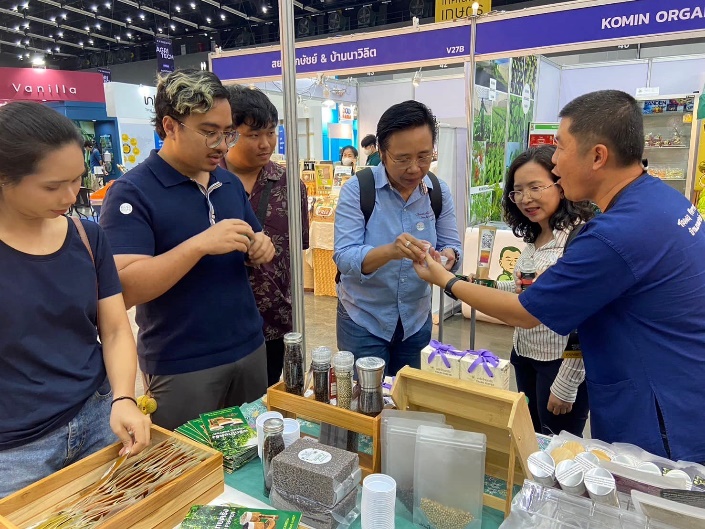Reporters: Mr. Sujinda Saehan, Mr. Ekkajak Intarat, Mr. Nitigon Jumniansuk, Mr. Thanet Sangseejun
Evidence Date: October 30th, 2024
Related SDGs: 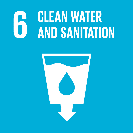
Related Indicators: 6.5.1, 6.5.3, 6.5.4, 6.5.5, 6.5.6, 6.5.7
Details:
Since the early 20th century, plastics have rapidly replaced natural materials due to their versatility, durability, and low production cost. Global plastic production reached an unprecedented 359 million tons in 2018, creating a massive environmental footprint. Thailand, in particular, faces severe challenges related to plastic pollution, ranking sixth worldwide in the discharge of plastic waste into natural water bodies. Poor waste management and inadequate recycling practices exacerbate the problem, as only around 14% of plastic packaging is effectively recycled, leaving a substantial portion to contaminate rivers, lakes, and coastal ecosystems. Over time, large plastic debris breaks down into microplastics—tiny plastic particles less than five millimeters in size—that accumulate in aquatic organisms, causing internal injuries, digestive blockages, and the potential for bioaccumulation along the food chain.
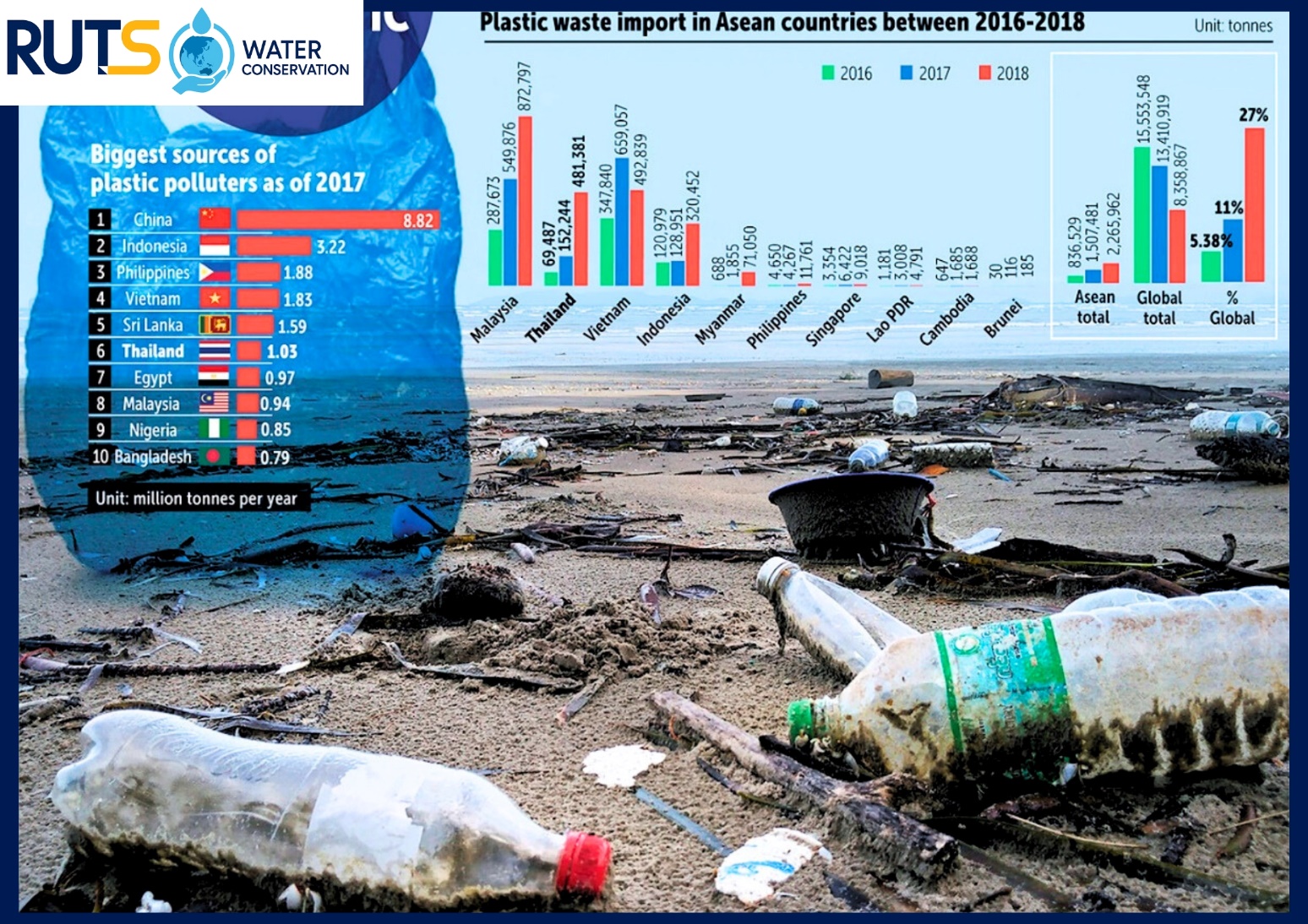
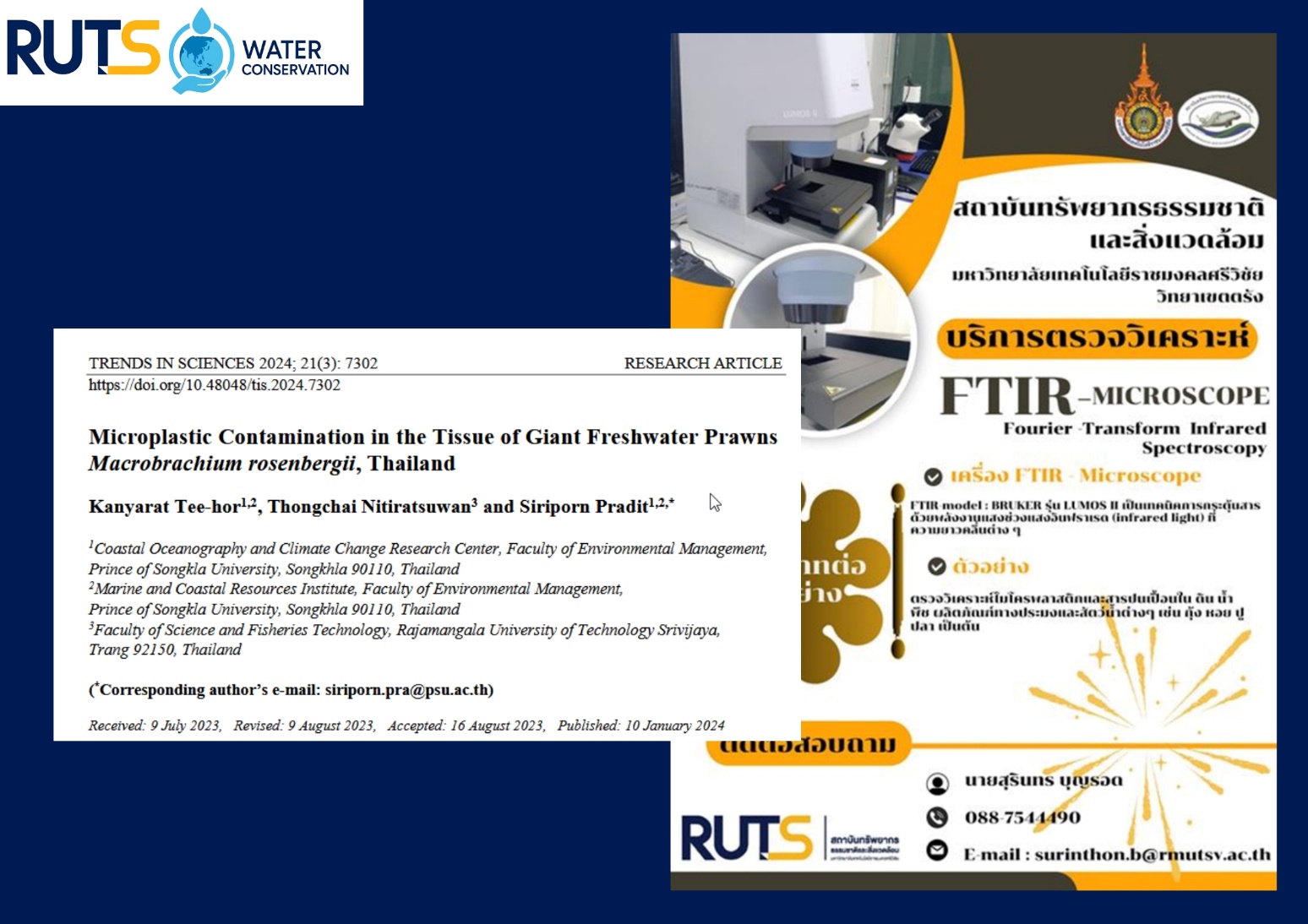
To address these pressing challenges, Rajamangala University of Technology Srivijaya (RUTS) established the Microplastic Monitoring Laboratory in 2021, aiming to monitor, analyze, and mitigate microplastic pollution in Thailand’s aquatic ecosystems. The laboratory is equipped with advanced analytical tools, including the BRUKER LUMOS II FTIR Microscope, enabling high-resolution identification and quantification of microplastic contamination in a variety of biological and environmental samples. Research efforts focus on key species such as shrimp, shellfish, crabs, fish, aquatic plants, and fishery products in Trang Province, providing critical data to assess ecosystem health and inform sustainable management strategies.
Beyond laboratory analysis, RUTS emphasizes capacity-building and practical training for students and researchers. Scientists at the center have demonstrated microplastic analysis techniques using specialized marine microplastic analysis kits, including hands-on sessions for veterinary students completing their internships. These training opportunities not only enhance technical skills but also cultivate a generation of researchers equipped to tackle real-world environmental challenges.
RUTS researchers also collaborate with leading Thai institutions, such as Prince of Songkla University (PSU), to investigate microfiber contamination in giant freshwater prawn tissues from the Trang River. These collaborative studies contribute to the broader scientific understanding of microplastic accumulation in aquatic organisms and inform policies to reduce plastic pollution. Research findings have been published in peer-reviewed journals, enhancing national and international knowledge about the ecological and human health risks posed by microplastics.
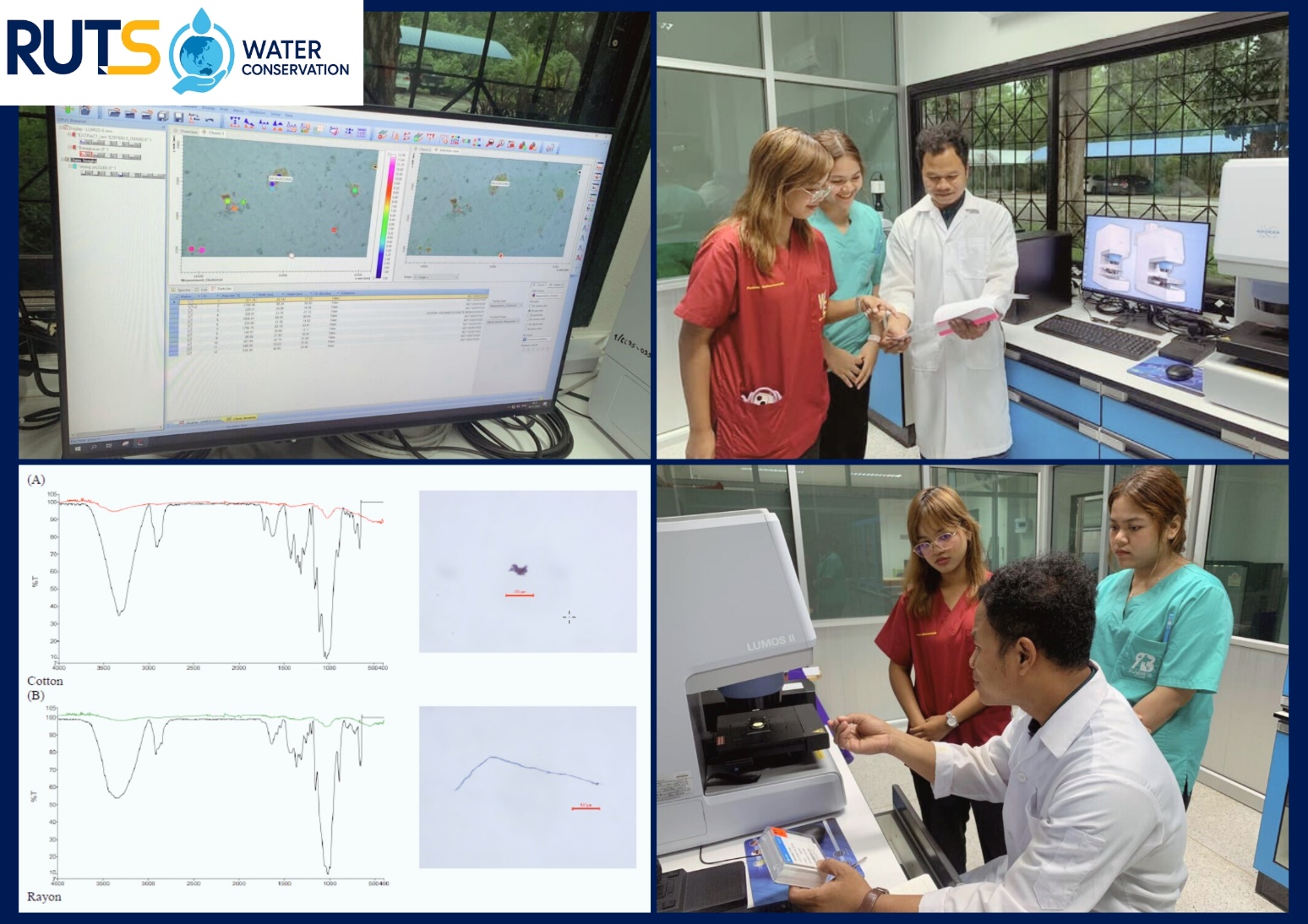
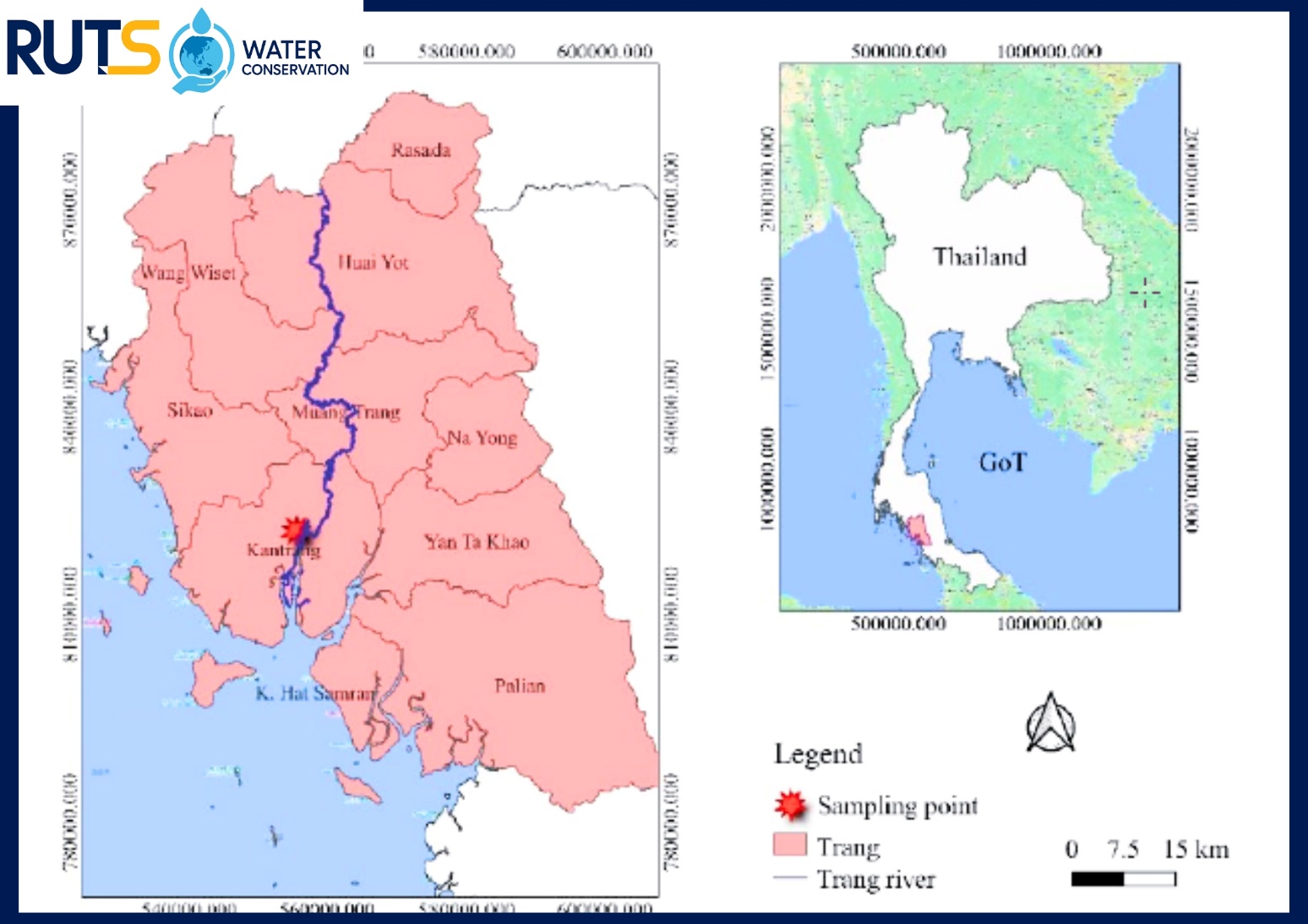
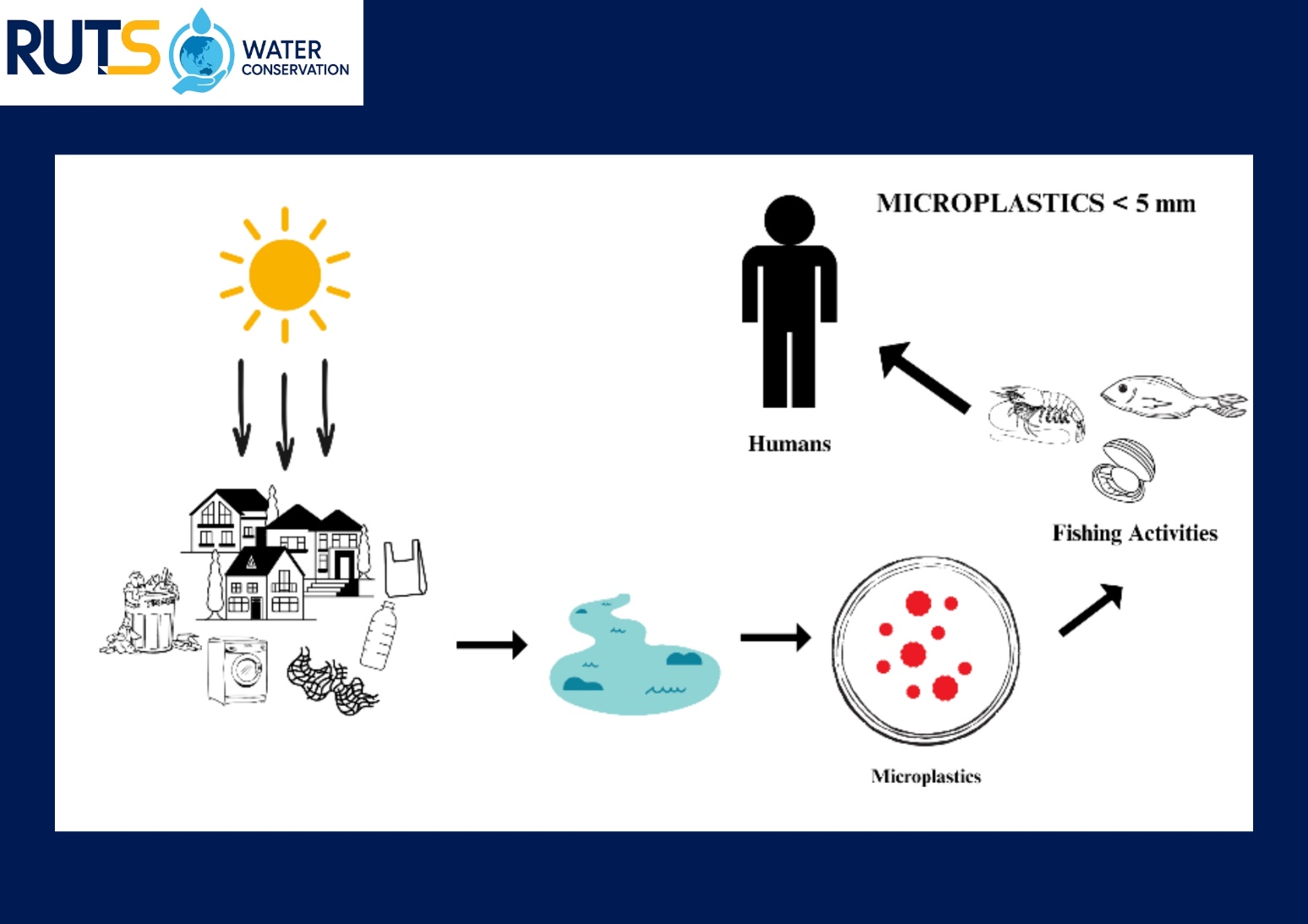
The work of the RUTS Microplastic Laboratory directly supports the United Nations Sustainable Development Goal 6 (SDG 6: Clean Water and Sanitation). By monitoring water quality and assessing pollution levels, the laboratory provides essential data that can guide effective water management practices, prevent ecosystem degradation, and protect human health. Microplastic contamination threatens freshwater resources and food security, making its mitigation critical for achieving safe and sustainable water access. Moreover, the laboratory’s initiatives align with broader environmental sustainability goals, including reducing waterborne pollutants, promoting responsible consumption and production, and fostering community awareness about pollution prevention.
In addition to research and education, the laboratory serves as a hub for community engagement and policy advocacy. Findings from RUTS studies inform local stakeholders, including fishery cooperatives, municipal authorities, and environmental agencies, enabling evidence-based interventions to reduce plastic discharge into rivers and coastal areas. Public outreach activities further enhance awareness of the impacts of microplastic pollution, encouraging behavioral changes such as proper waste segregation, reduced single-use plastic consumption, and responsible disposal practices.
In conclusion, the RUTS Microplastic Monitoring Laboratory represents a comprehensive approach to understanding and mitigating microplastic pollution in southern Thailand. Through cutting-edge research, hands-on training, and community engagement, the laboratory not only advances scientific knowledge but also contributes to the achievement of SDG 6 by safeguarding clean water, protecting aquatic biodiversity, and promoting sustainable management of freshwater and coastal ecosystems. The integration of technology, education, and policy advocacy underscores RUTS’s commitment to addressing one of the most pressing environmental challenges of the 21st century.
Related Links:



